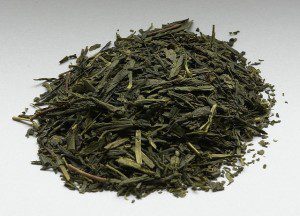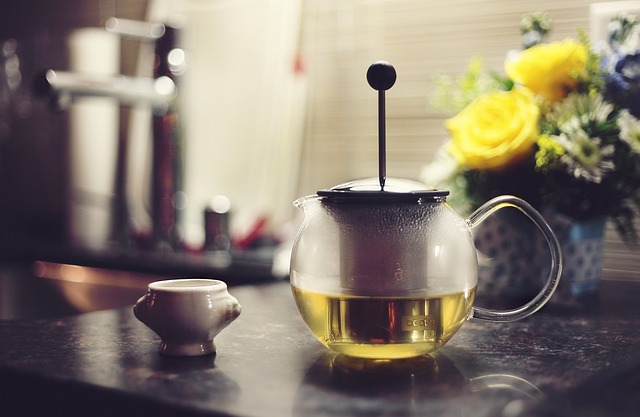Tea drinking has been associated with various health benefits for centuries. The benefits of most teas are mostly due to their high content in flavonoids, which are plant-derived compounds that are, in fact, antioxidants. Green tea is made from the Camellia sinensis plant, native to China and dating back thousands of years. It is not only a tasty beverage, but a well-recognized medicinal herb, especially appreciated by practitioners of traditional Chinese medicine – naturopathy and herbology.
 The most popular mode of consuming the plant is hot tea, often called an herbal infusion or tisane, but over the last decade, green tea liquid extracts and capsules have become readily available in American health food stores and pharmacies. The benefits of green tea are very popular and well-known.
The most popular mode of consuming the plant is hot tea, often called an herbal infusion or tisane, but over the last decade, green tea liquid extracts and capsules have become readily available in American health food stores and pharmacies. The benefits of green tea are very popular and well-known.
Catechins, or otherwise known as apigallocatechin-3-gallate (EGCG) are important constituents of green tea with anti-infective and antibacterial effects. They also have antifungal activity against human-pathogenic yeasts such as Candida albicans. Catechins are more powerful than vitamins E and C in halting oxidative damage to cells, but they also have many other disease-fighting properties. The best thing about the benefits of green tea is that the tea is usually not heavily processed before it reaches your cup.
There have been numerous studies proving green tea is good for your whole metabolism. It even reduces risk of several cancers and heart disease. What is good for your heart is also good for your brain. Researches continue to demonstrate that natural remedies, especially green tea, are perhaps the most effective option for flu and cold prevention, as well.
Green tea against the flu and cold
The common cold is an upper respiratory viral infection and it typically causes a runny nose, sneezing, nasal congestion, coughing, mild fever and sore throat. It is very common, in fact, over one billion colds happen each year in the United States alone, which is more than three colds per person. The cold is caused by many different viruses, most of them classified as rhinoviruses. A cold can last up to three weeks and is almost always self-limiting. Cold viruses are nothing but infections because they can get easily spread through the body fluids and secretions.
 During the flu and cold season, with all those people coughing and sneezing around you, you may be able to avoid getting sick or at least reduce the number of days when you’ll be experiencing the symptoms by an average of 36 percent – if you drink green tea regularly. A squeeze of lemon juice will improve the benefits of green tea because it makes the antioxidants from the tea more available for your body to absorb.
During the flu and cold season, with all those people coughing and sneezing around you, you may be able to avoid getting sick or at least reduce the number of days when you’ll be experiencing the symptoms by an average of 36 percent – if you drink green tea regularly. A squeeze of lemon juice will improve the benefits of green tea because it makes the antioxidants from the tea more available for your body to absorb.
The benefits from green tea come from its richness in polyphenols, catechins and flavonoids, which are known to have antioxidant, antimicrobial, antifungal, alkalizing and immune-stimulating qualities. Flavonoids are antioxidants that reduce inflammation. Drinking green tea will help you reduce discomfort from a sore throat. Gargling is another great way of using green tea for a sore throat. This tasty beverage does not only protect the tissue from infection and boost the immune system, but also directly kill viruses, bacteria and fungi. Although green tea alone won’t exactly protect you from all the viruses 100%, it will reduce the strength and duration of symptoms.
The University of Florida and the Nutritional Science Research Institute have completed a clinical trial research on a certain product which has a specific combination of ingredients, among which are green tea catechins. The study has shown that it can enhance the body’s immune system significantly, resulting in a decreased incidence and duration of flu and cold symptoms.
The randomized, placebo-controlled research conducted at the University of Florida followed 120 healthy people for a period of three months. One group of people took placebo capsules, while the other took green tea capsules. The research has shown that green tea capsules, thanks to a significant amount of catechins have the following effects:
- A decreased number of people having flu and cold symptoms by 32 percent
- Decreased number of symptom days by 36 percent
- Decreased need for medical treatment with prescription drugs due to flu and cold symptoms by 58 percent
- Increased immune function by 28 percent
 Although it is complicated to study the benefits of green tea due to hundreds of varieties available, along with numerous ways to process and store it, there is a proven general agreement that it is all about the catechins. They strengthen your immune system and help you successfully fight away flu and cold viruses.
Although it is complicated to study the benefits of green tea due to hundreds of varieties available, along with numerous ways to process and store it, there is a proven general agreement that it is all about the catechins. They strengthen your immune system and help you successfully fight away flu and cold viruses.
Although catechins take the leading role, green tea also contains an alkaloid called theophylline which helps open your airways. Theophylline will allow you to avoid having a blocked nose and constantly running out of breath.
A recent study in Japan has also revealed the true power of green tea, especially when it comes to fighting the flu in children. Green tea has been known to contain antiviral components that prevent influenza infection. An observational study has been conducted to determine the exact association between green tea consumption and influenza infection among schoolchildren in a tea plantation area of Japan. The research consisted of anonymous questionnaire surveys undertaken twice during the cold season from November 2008 to February 2009. Each questionnaire was completed and submitted by 2663 pupils across elementary schools in Kikugawa City located in a tea plantation area. The results have suggested that the consumption of 1-5 cups of green tea on daily basis may prevent influence infection in children.
Green tea is a very powerful natural food. According to many medical experts, it is the best beverage you could ever choose to drink, especially in cold and flu season. A cup of green tea a day keeps the cold away.
References:
- US National Library of Medicine; National Institutes of Health: Effects of green tea catechins and theanine on preventing influenza infection among healthcare workers: a randomized controlled trial; http://www.ncbi.nlm.nih.gov/pubmed/21338496
- Green tea consumption is inversely associated with the incidence of influenza infection among schoolchildren in a tea plantation area of Japan;http://www.ncbi.nlm.nih.gov/pubmed/21832025
- Anti-infective properties of epigallocatechin-3-gallate (EGCG), a component of green tea;: http://www.ncbi.nlm.nih.gov/pubmed/23072320
- Specific formulation of Camellia sinensis prevents cold and flu symptoms and enhances gamma, delta T cell function: a randomized, double-blind, placebo-controlled study

